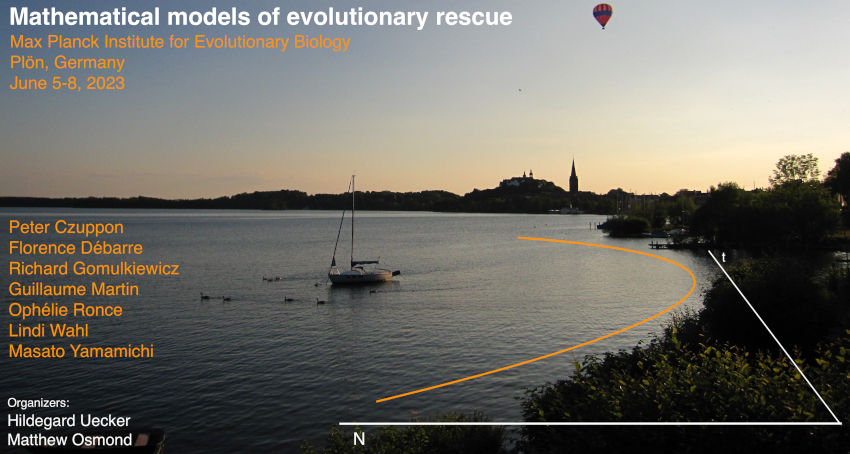Description
Please find the poster abstracts here, sort for posters: https://workshops.evolbio.mpg.de/event/82/contributions/
Modern agriculture faces the problem of meeting the rapidly increasing demand for food in a growing world population while minimising the environmental impacts. Weeds are a major threat to crop production, causing the highest yield losses among pests. Since the late 1960s, conventional agriculture has primarily relied on herbicides for controlling weeds. This overreliance on herbicides has led...
Populations of microbial pathogens or cancer cells possess enormous adaptive potential that allows them to emerge from homeostatic regulations for example by the immune system. From a reductionistic viewpoint, the fundamental processes in such populations are replication, mutation and death. Using traits to represent these processes, the emergence from homeostatic regulation can be understood...
Evolution is a heritable change in the characteristics of the population over time and adaptation is the evolutionary process by which a population survives in its environment. Stochastic fluctuations due to finite population size can alter the fate of the population and therefore, it is crucial to understand the dynamics of adaptation in a finite population. We explore the evolution of a...
In hematologic cancers, the initial response to therapy can be observed via temporal changes in tumor burden or approximate measures of tumor burden during treatment. Once the cancer cell population is small, further disease evolution is dominated by underlying stochastic disease kinetics. Many treatments evoke an initial response and tumor decline, but hidden (or difficult to detect) cancer...
The evolution of antimicrobial resistance in bacteria poses a major challenge for patient treatment worldwide. One option to reduce the risk of the undesired evolutionary rescue during treatment is to increase the genetic barrier to resistance, which can, for example, be achieved by increasing the number of drugs applied. With multiple drugs in combination, applying the different drugs at the...
Bacterial populations face bottlenecks during infection of host populations, caused by factors such as transmission of pathogens, host immune response, and antibiotic treatment. Bottlenecks can increase the influence of random effects during bacterial evolution and directly affect the diversity of resistance alleles. Despite the importance of bottlenecks in resistance evolution, their role in...

